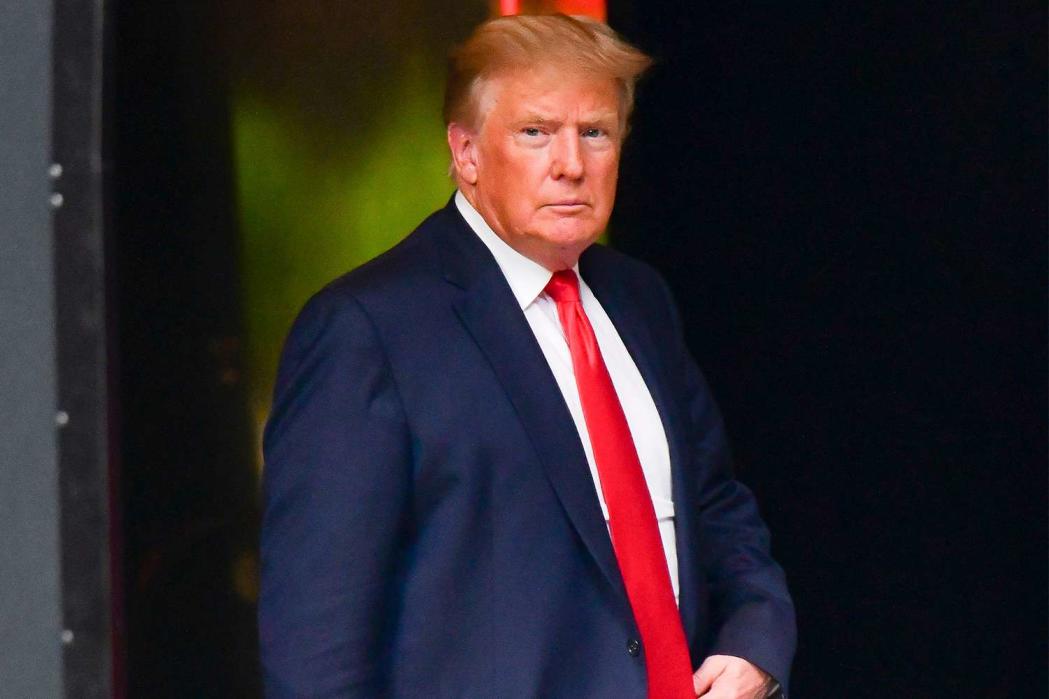Trump Says He Encourages 'Immediate' Release of the FBI's Search Warrant That He Could Release Himself

- Oops!Something went wrong.Please try again later.
James Devaney/GC Images Donald Trump
Donald Trump says he will not oppose the release of the search warrant executed by the FBI in its search of the former president's Mar-a-Lago residence on Monday. In fact, Trump called for an "immediate release" of the documents — even though, as some have noted, he could release them himself.
In a statement posted to his social media site Truth Social, 76-year-old Trump said: "Not only will I not oppose the release of documents related to the unAmerican, unwarranted, and unnecessary raid and break-in of my home in Palm Beach, Florida, Mar-a-Lago, I am going a step further by ENCOURAGING the immediate release of those documents, even though they have been drawn up by radical left Democrats and possible future political opponents, who have a strong and powerful vested interest in attacking me, much as they have done for the last 6 years…"
While a federal judge determines whether to sign off on the release of the search warrant and property receipt, sources reportedly told CBS News that Trump and his legal team are weighing whether to release their copy of the documents, as well as security footage, themselves.
As some critics point out, Trump could have already publicized what the warrant sought and what was seized from the search.
Instead, he has stirred outrage among his supporters, lambasting the law enforcement officers of the FBI and Department of Justice, and accusing the search of being political (this despite the White House saying it only learned of the search via news reports).
As Trump has spun the search into a him-versus-the-FBI narrative, threats against agents have proliferated on extremist, far-right corners of the web in the days since the FBI executed the warrant on Monday at the home of the former president.
On Thursday, a man was fatally shot after trying to break in to an FBI field office in Ohio and getting in a standoff with state police. Prior to his attempted attack, he had taken to Truth Social to write: "If you don't hear from me, it is true I tried attacking the F.B.I., and it'll mean either I was taken off the internet, the F.B.I. got me, or they sent the regular cops while."
RELATED: Donald Trump's Mar-a-Lago Home Searched by FBI: 'The Mood Was Pure Shock'
Trump's statement demanding the release of the documents came in response to U.S. Attorney General Merrick Garland's brief, last-minute Thursday afternoon speech. In it, Garland announced that the Department of Justice had filed a motion to unseal the search warrant and property receipt, so that the public can see basic details of their search.
He also noted that Trump's counsel was provided with copies of those documents on the day of the search.
It is believed that the FBI's search was conducted in order to retrieve classified documents that Trump allegedly failed to turn over to the National Archives and Records Administration at the end of his presidency, though Garland did not confirm that detail in his speech.
The attorney general also revealed that he personally approved the decision to seek a search warrant and that it was not a decision taken lightly, but was viewed as a necessary last resort in their investigation.
Never miss a story — sign up for PEOPLE's free daily newsletter to stay up-to-date on the best of what PEOPLE has to offer.
Trump's statement approving the release of the documents comes amid reports that federal agents were looking for highly classified records related to nuclear weapons as part of the search.
The specifics of those documents and whether any were recovered remains unknown, although new reports have emphasized the potential danger of such classified information falling into the wrong hands.
A source with knowledge of the subpoena tells PEOPLE, "I can't tell you anything about nuclear documents. But this is why it's important for the subpoena to be made public. The public needs to know what is or is not in that subpoena."

